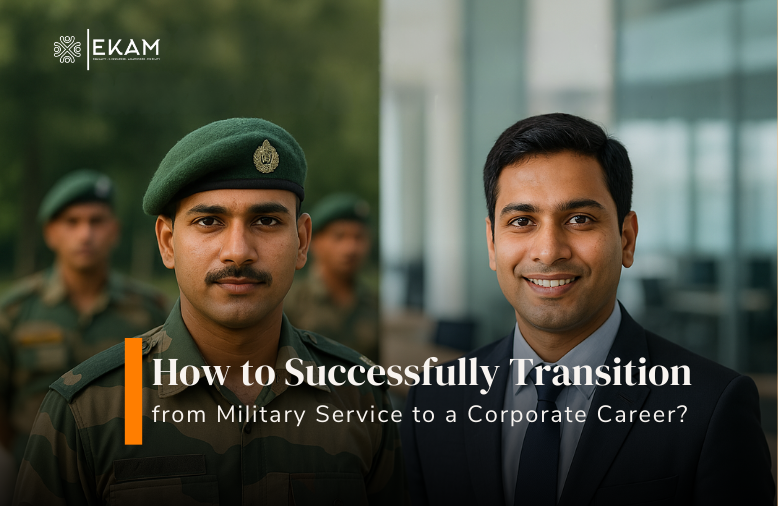Transitioning from military service to the corporate world can be a profound life change. Most military professionals are accustomed to structured environments with defined hierarchies, making the corporate landscape feel unfamiliar at first. However, veterans bring a unique set of highly valued skills—such as leadership, discipline, adaptability, crisis management, and collaboration—that are in high demand across industries.
With a well-planned strategy and the right mindset, this shift can lead to a rewarding and successful career. Here are key steps veterans should consider when making the move from the military to the corporate sector:
1. Understand the Cultural Shift
While there are some parallels between military and corporate roles—especially in leadership and teamwork—the two environments differ significantly in culture, communication, and expectations. Corporate settings often emphasize flexibility, individual initiative, and a different pace of decision-making.
Understanding these cultural differences early on allows for greater adaptability, helping veterans embrace new business priorities, work styles, and professional values.
2. Identify Transferable Skills
Veterans possess a wealth of transferable skills that are applicable across multiple industries. These include:
- Leadership and team management
- Strategic decision-making under pressure
- Problem-solving and critical thinking
- Technical expertise in areas such as cybersecurity, logistics, and aviation
By clearly identifying these strengths, veterans can match their experience to relevant corporate roles in fields such as operations, human resources, IT, and security.
3. Explore Career Paths
Veterans have diverse career guidance for veterans options in the private sector. Choosing the right path often depends on interests, skills, and long-term goals. Common sectors where veterans thrive include:
- Security & Risk Management – Ideal for those with crisis management and threat assessment experience.
- Logistics & Supply Chain Management – A natural fit for veterans skilled in operational planning and resource coordination.
- Information Technology & Cybersecurity – Especially suitable for veterans with technical backgrounds.
- Human Resources & Coaching – For those interested in mentoring, leadership development, and corporate training.
- Aviation, Law Enforcement & Defense Consulting – Continuations of military-aligned professions in civilian roles.
4. Upskill and Earn Relevant Certifications
While military experience lays a strong foundation, some corporate roles require formal certifications or additional training. Consider certifications such as:
- Project Management Professional (PMP)
- CompTIA Security+ or CISSP (for cybersecurity)
- Six Sigma or supply chain certifications
- Business analytics or data science program
Upskilling not only improves employability but also positions veterans for leadership roles in the private sector.
5. Build a Corporate-Ready Resume and LinkedIn Profile
Translating military experience into business language is essential. Use terms and phrases that highlight:
- Leadership and team-building
- Operational effectiveness
- Problem-solving and initiative
- Project management and communication
Your LinkedIn profile should complement your resume with a clear headline, professional photo, and details that reflect both your military achievements and your career ambitions.
6. Network and Seek Mentorship
Networking is one of the most powerful tools in a veteran’s job search. Leverage:
- LinkedIn to connect with professionals and recruiters
- Veteran-specific job fairs and events
- Informational interviews with industry professionals
- Mentorship programs designed for veterans
Speaking with those who have already made the transition can offer valuable insights and guidance.
7. Leverage Veteran-Focused Programs
Numerous organizations and companies are dedicated to helping veterans transition into the workforce. These programs often provide:
- Resume assistance
- Interview preparation
- Financial support for upskilling
- Direct job placement services
Many multinational companies also offer veteran hiring initiatives that actively recruit former service members. Make the most of these resources to streamline your job search tips for ex-servicemen.
Ekam: Your Trusted Partner in Career Transition
At Ekam, we understand the unique challenges veterans face when transitioning from military life to the corporate world. We specialize in connecting veterans with top employers who value their skills and experience. From AI-driven job matching and exclusive career fairs to mentorship and training programs, we’re here to ensure a smooth and successful career shift.
Frequently Asked Questions (FAQs)
- How long does it take veterans to transition into a corporate job?
The timeline varies, but with proper planning, networking, and targeted job searching, most veterans secure a new role within a few months. - Is networking important for veterans pursuing careers in tech?
Absolutely. Networking connects you with mentors, employers, and professionals in your field—enhancing your visibility and opportunities in the job market. - What steps should veterans take before applying for corporate roles?
Research industries, update your resume and LinkedIn, connect with mentors, and consider relevant certifications. Attending career workshops and informational interviews is also beneficial. - Are professional certifications necessary for veterans?
While not always mandatory, certifications in project management, cybersecurity, or supply chain management can greatly enhance a veteran’s competitiveness in the corporate job market.
